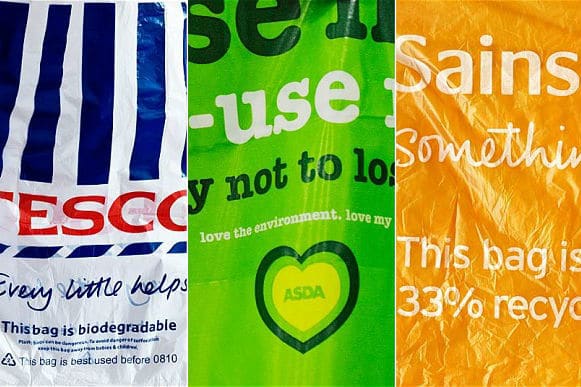It seems there are new headlines every day about the UK‘s supermarket retailers. Often the stories are conflicting, whether it be a drop in consumer confidence or a record breaking footfall report.
This is down to various factors, all of which are new challenges for the grocery giants and all of which are largely unpredictable.
New players Aldi and Lidl have thrown the Big 4’s dominance into question. Mix this with the Brexit referendum, unpredictable weather patterns, major sporting events and ambiguous consumer confidence and you begin to appreciate the shifts happening within the industry. The most recent noticeable shift has been the price wars between the big players.
“The next stage of the supermarket ‘price war‘ was already looming, as traditional UK retailers gear up to fight Aldi and Lidl, so Brexit is just a convenient scapegoat,” Sapient Nitro vice president Guy Elliot told the Retail Gazette.
“In fact, it‘s worked nicely as a reaction by supermarkets to reassure consumers that the cost of goods won’t rise in a post-Brexit world.”
A spokesman for the British Retail Consortium (BRC) took a different view of the recent price wars.
“Supermarket prices have been competitive for some time, as we see the Big 4 try to compete with the discount offerings of Aldi and Lidl,” he said.
“With consumer confidence lower following June 23, there could be a knock-on effect on prices.
“We have seen some key supermarket staples rise in price in June and July and time will tell if this trend continues.”
This month has already played host to more sizeable developments in the sector. Firstly, Aldi reported a halt in its seemingly unstoppable growth.
RELATED: Supermarket sales dip below £100bn for the first time since 2010
“Aldi‘s slowdown could be a result of two combined factors – the first being that it has reached a saturation point with its current segment of customers, and has to find new ones by going a bit more upmarket,” Elliot said.
“Aldi generally takes a majority of the market share in lower socio-economic categories, and so to grow it must start a deeper penetration into the middle socio-economic market.
“Secondly, traditional lower-end (particularly Tesco) supermarkets have started to up their game with increased discounting and an elevated focus on customers, attracting them back, or at least not losing them as fast, which in turn is decreasing Aldi’s ability to continue to grow at the same pace.”
Last week, Morrisons announced a deal with Ocado in a move to focus on home delivery and ecommerce.
Deliveries are a key factor as flexible service and a sharp rise in digital consumers becomes the norm. It is also where the Big 4 seek to win back their slice of the market given up to Aldi and Lidl.
“What we do know is that what is already important to online shoppers will remain important – ease of shopping, excellent customer service, frequent and affordable delivery times, few substitutions and competitive prices,” BRC’s spokesman said.
Elliot agreed: “The question isn’t really how important deliveries are expected to be – they already are – the question is how important consumer delivery expectations will be in the coming months.
“Minimal-to-no missed items or substitutions in baskets, timely orders, narrower delivery windows, top-quality customer service to handle any issues – that will lead the category.”
There is little to go on to predict the future of the superm
RELATED STORIES


















